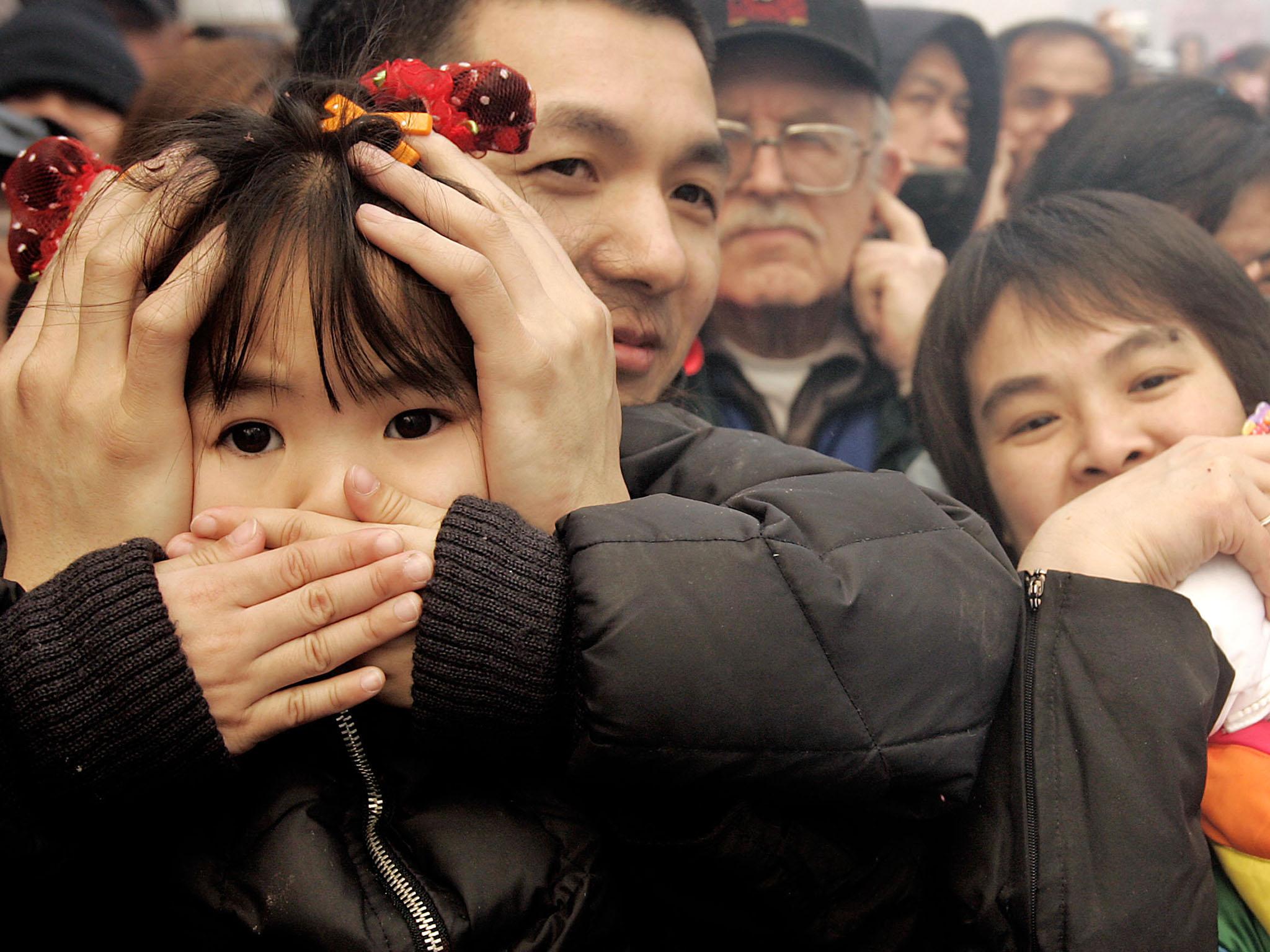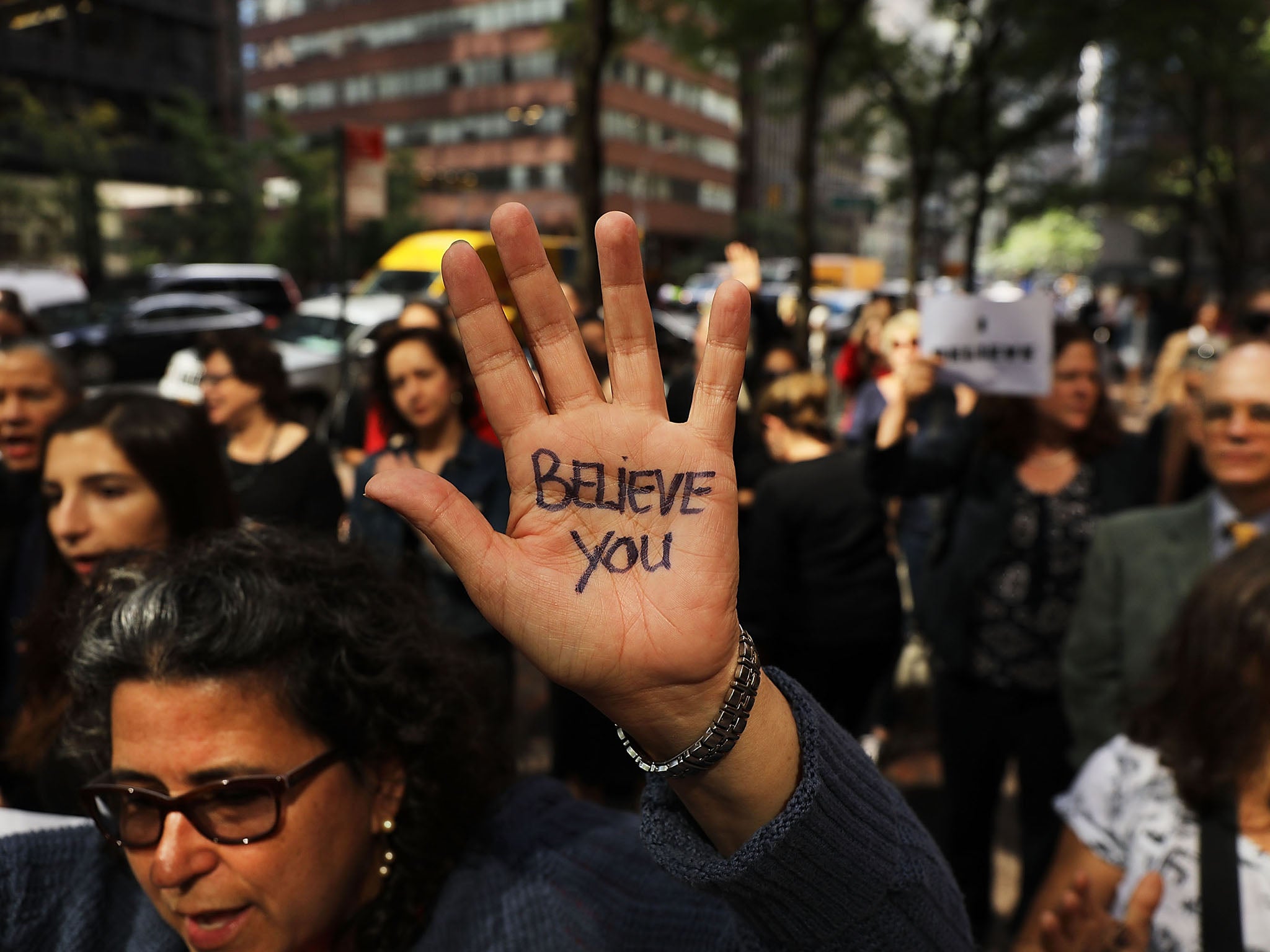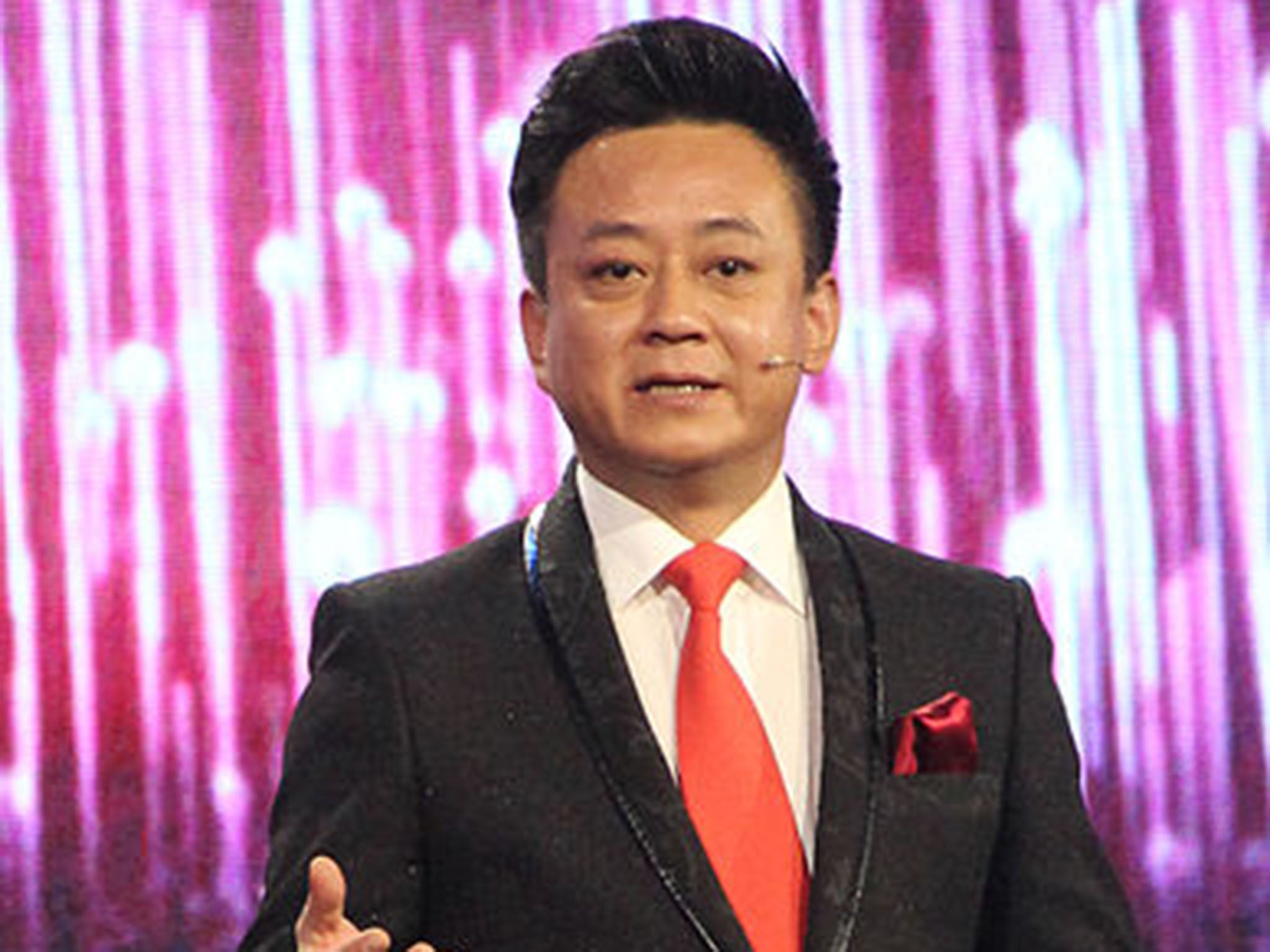From censors to lawsuits: The woman on a #MeToo mission in China
When Zhou Xiaoxuan blogged about an alleged sexual assault, she did not expect to become a symbol of hope for women tired of China’s patriarchal culture. But now, she tells Javier C Hernández, she has also become a target for hate

Your support helps us to tell the story
From reproductive rights to climate change to Big Tech, The Independent is on the ground when the story is developing. Whether it's investigating the financials of Elon Musk's pro-Trump PAC or producing our latest documentary, 'The A Word', which shines a light on the American women fighting for reproductive rights, we know how important it is to parse out the facts from the messaging.
At such a critical moment in US history, we need reporters on the ground. Your donation allows us to keep sending journalists to speak to both sides of the story.
The Independent is trusted by Americans across the entire political spectrum. And unlike many other quality news outlets, we choose not to lock Americans out of our reporting and analysis with paywalls. We believe quality journalism should be available to everyone, paid for by those who can afford it.
Your support makes all the difference.On a sleepless night last summer, her Siamese cat Star at her feet, Zhou Xiaoxuan, a 25-year-old screenwriter in Beijing, took out her phone and began writing furiously about the day that had haunted her for years.
In 2014, as a fresh-faced intern at China Central Television, the state-run broadcaster, she was asked to bring fruit to the dressing room of Zhu Jun, a famous anchor. It was there, she says, that Zhu began forcibly kissing and groping her. (Zhu has denied the accusations.)
Zhou’s essay about the experience, which she posted online in July, is an impassioned plea for women’s rights in China – and a daring rebuke of the status quo.
“It’s important for every girl to speak up and say what she has suffered,” it says. “We need to make sure society knows that these massacres exist.”
Soon, after a friend of a friend reposted Zhou’s essay on Sina Weibo, a microblogging site, it quickly spread across the Chinese internet and inspired women to come forward with their own stories of abuse. It became so popular that the Chinese government intervened, blocking comments and banning the state-run news media from covering her case.
Zhou was overwhelmed. In a matter of days, she had emerged as a hero of China’s fledgling #MeToo movement, a symbol of hope for young women tired of the the country’s patriarchal culture. But she had also become a target for hate, receiving hundreds of threatening messages.
Then Zhu, 54, fired back. In August, he filed a lawsuit against Zhou describing her accusations as “blatantly fabricated and viciously spread”. He asked for about $95,000 (£74,000) in damages, saying Zhou had harmed his reputation and caused emotional distress.

Zhou thought about retreating. Instead, she became emboldened, filing a lawsuit of her own against Zhu claiming damage to her dignity, and writing online: “Let’s get ready to fight.”
Since then, Zhou has become a leading feminist voice in China, setting out to push the limits of China’s #MeToo movement, which has struggled to gain footing in the face of censorship and a reluctance by authorities to investigate cases of sexual harassment and assault.
I wanted to let my friends know, through this post, that #MeToo was very close to them
Zhou has helped abused women seek justice, accompanying them to police stations to file criminal reports. She has criticised the government and society at large for not doing more to protect women against domestic violence. And she has meticulously chronicled her legal battle, publishing a diary about her triumphs and setbacks.
Zhou acknowledges that women in China face many obstacles, including vaguely defined laws on rape and harassment and a culture that often blames women, not men, in cases of sexual abuse. But she says she is optimistic that attitudes will change.
“Once you light the spark that starts a fire,” she says, from her home in east Beijing. “It will have an impact on people’s hearts.”
Growing up in Wuhan, an industrial city in central China, Zhou watched as many families in her hometown seemed to value sons over daughters, a practice going back hundreds of years. Her own parents, worried that as a woman she might face harassment or violence, forbade her from taking public transportation until she was 13.
It was not until summer 2014, during her internship at China Central Television, or CCTV, that Zhou says she fell victim to China’s male-dominated culture.
The internship at CCTV, working on Zhu’s signature show, Artist, was a prestigious job for Zhou, then a college junior who aspired to work in the film industry.
Zhu is CCTV royalty, a former singer, actor, dancer and clarinettist for the People’s Liberation Army with an illustrious 25-year career at the network. He is best known as a host of the annual CCTV’s Lunar New Year Gala, a programme viewed by more than 700 million people. On Artist, which ended in late 2017, he was famous for asking emotional questions that prompted his guests to cry.

On the day she says she was forcibly kissed and groped by Zhu, Zhou and another intern were invited to interview the famed anchor in his dressing room. When the other intern stepped out of the room, she says, Zhu turned to Zhou, grabbing her hand and telling her he could read fortunes. He then dragged her towards him and start kissing her, she says, even as she resisted. She ran out of the room when a guest arrived at the door.
Zhu’s lawyers and CCTV did not respond to requests for comment. In court filings, he says Zhou’s accusations were “made out of nothing and a severe misrepresentation”.
Zhu is also suing Xu Chao, a friend of Zhou’s who first reposted her essay and Sina Weibo, the microblogging platform that published the essay.
After the dressing room incident, Zhou ran to police.
But the officers urged her to drop her complaints, she says, arguing that Zhu was a force for good in society and warning that she might endanger the jobs of her parents. (Her father worked as a civil servant and her mother at a state-owned firm.)
For years, Zhou stayed silent, telling only her parents and closest friends about the incident, fearing she would be misrepresented.
“People are not allowed to show their pain and wounds,” she says. “Many women worry they will be seen as whining.”
In July, while eating dinner with friends, she saw a #MeToo post by a childhood friend who had been assaulted. She was moved to tell her own story as a show of support to her friend and to let her male friends know that sexual misbehaviour was widespread. She stayed up all night writing, posting her essay shortly after 5am.
“I wanted to let my friends know, through this post, that #MeToo was very close to them,” she says.
Advocates for women’s rights say Zhou’s example has made it easier for other women to share their stories of abuse. While China’s #MeToo movement is small, complaints by women over the past year against university professors, tech executives, religious leaders and nonprofit executives, among others, have drawn wide attention.
“More young people are willing to stand up and speak,” says Huang Yizhi, a lawyer in Beijing who specialises in gender discrimination cases. “They are no longer afraid.”
Zhou says she considers herself lucky, not courageous, because her case earned wide attention in the news media. Many women in China struggle to be heard, she says, noting that some victims wait in line for days at police stations, only to be ignored.
“The obstacles that other women experience is beyond my imagination,” she says. “It’s almost impossible for their cases to be resolved.”
On her Weibo page, she offers a mix of inspirational slogans (“the light will come”) and reflections on her own struggles. In one recent post, she recounts how she disliked a photo taken by a journalist because it made her look like a powerless victim.
“I am in a cage, lacking courage, insignificant, flinching and escaping, just like this photo,” she writes. “I hope that girls can get more protection and that when they face the camera, they can laugh openly.”
On a smoggy October day, Zhou strides into a courthouse in northwest Beijing for her first appearance in Zhu’s lawsuit. During the proceedings, she is asked to provide evidence of the assault and recount what had happened.
After the court session ends, Zhou, nervous and frightened, says she felt so tired that she wanted to vomit.
Later, at a news conference, a journalist asks if she felt under pressure. Zhou pauses for a moment, taking stock of her ordeal.
“This is something I must tackle,” she says. “I don’t have a choice.”
© New York Times
Join our commenting forum
Join thought-provoking conversations, follow other Independent readers and see their replies
Comments